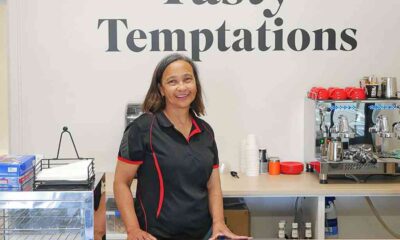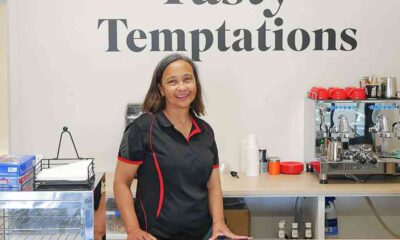Science
NZ$1.7 Billion Bet on Future of Human Lifespan Sparks Debate

The healthcare industry is witnessing a remarkable wager of NZ$1.7 billion on whether humans will achieve a lifespan of 150 years. This substantial investment reflects growing confidence in medical advancements, particularly in organ transplantation, which have revolutionized patient care and extended life expectancy. Notably, the brain remains a significant challenge amid these developments.
Advancements in medicine have transformed organ transplantation, with improved techniques and technologies allowing for better outcomes. According to a report from the World Health Organization, successful organ transplants have seen survival rates dramatically increase, contributing to longer lives for many patients. The prospect of extending human lifespan further to 150 years is now being taken seriously by some investors and scientists alike.
The State of Medical Research
While organ transplantation has made significant strides, research into brain health and potential therapies for neurological conditions has not progressed at the same pace. Experts argue that understanding brain function and developing effective treatments for age-related cognitive decline are critical to achieving longer lifespans. Some researchers emphasize that without breakthroughs in brain science, the goal of living to 150 years may remain elusive.
As the medical community delves deeper into the intricacies of human biology, the conversation around longevity is becoming increasingly multifaceted. Scientists are exploring a range of factors that influence aging, including genetics, lifestyle, and environmental impacts. The growing field of gerontology is seeking answers that could unlock the secrets to significantly extending human life.
The Financial Implications of Longevity
The NZ$1.7 billion wager represents not only a bet on longevity but also a financial commitment to the future of healthcare. Investors are eager to capitalize on the potential market for anti-aging treatments and technologies. Analysts predict that the global market for longevity-related products and services could reach billions of dollars within the next few decades.
As innovations continue to emerge, the potential for companies focused on age-related healthcare solutions is vast. From pharmaceuticals to biotechnology, the landscape is evolving rapidly. The possibility of living longer, healthier lives is fueling interest and investment in this sector, making it a focal point for both researchers and financiers.
The debate over the implications of extended lifespans raises ethical questions about resource allocation and societal impact. How would a significantly older population affect healthcare systems, economies, and social structures? As discussions continue, it is clear that the journey toward potentially living to 150 years will not only be a scientific endeavor but also a societal challenge.
As the healthcare industry navigates these complex issues, the focus remains on unlocking the potential of human longevity. The NZ$1.7 billion wager serves as a reminder of the ambitious goals set by researchers and investors alike. With ongoing advancements in medicine, the dream of living to 150 years may become a reality in the coming decades, reshaping the way society views aging and health.
-

 World2 weeks ago
World2 weeks agoPrivate Funeral Held for Dean Field and His Three Children
-

 Top Stories3 weeks ago
Top Stories3 weeks agoFuneral Planned for Field Siblings After Tragic House Fire
-

 Sports3 months ago
Sports3 months agoNetball New Zealand Stands Down Dame Noeline Taurua for Series
-

 Entertainment3 months ago
Entertainment3 months agoTributes Pour In for Lachlan Rofe, Reality Star, Dead at 47
-

 Entertainment2 months ago
Entertainment2 months agoNew ‘Maverick’ Chaser Joins Beat the Chasers Season Finale
-

 Sports3 months ago
Sports3 months agoSilver Ferns Legend Laura Langman Criticizes Team’s Attitude
-

 Sports1 month ago
Sports1 month agoEli Katoa Rushed to Hospital After Sideline Incident During Match
-

 Politics2 months ago
Politics2 months agoNetball NZ Calls for Respect Amid Dame Taurua’s Standoff
-

 World3 weeks ago
World3 weeks agoInvestigation Underway in Tragic Sanson House Fire Involving Family
-

 Top Stories3 weeks ago
Top Stories3 weeks agoShock and Grief Follow Tragic Family Deaths in New Zealand
-

 Entertainment3 months ago
Entertainment3 months agoKhloe Kardashian Embraces Innovative Stem Cell Therapy in Mexico
-

 World4 months ago
World4 months agoPolice Arrest Multiple Individuals During Funeral for Zain Taikato-Fox




















